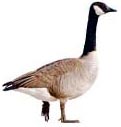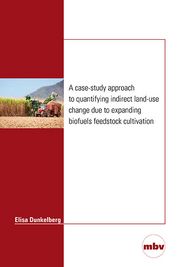The indirect effects of biofuels on land use: Dr Elisa Dunkelberg’s doctoral thesis is published
In her thesis, IÖW researcher Elisa Dunkelberg presents a new, case-study-based approach to quantifying indirect land-use change (ILUC) caused by biofuels production. Her book, A Case-Study Approach to Quantifying Indirect Land-Use Change due to Expanding Biofuels Feedstock Cultivation came about as part of the research project ‘Fair Fuels?’ This junior research group was supported under the Federal Ministry of Education and Research’s social-ecological research funding priority.
Dunkelberg’s approach involves identifying and evaluating regionally specific compensatory and mitigation measures. Her work takes into account measures that aim to increase agricultural yields and reduce the consumption of land-intensive products such as meat and milk. The new case-study method thus provides a better way of modelling the ILUC risk posed by a specific biofuel investment. The new approach makes it possible to structure future biofuels projects so that ILUC is avoided and a real contribution can be made to climate protection.
Three case studies: Malawi, Brazil and Germany
Dunkelberg applies her new approach to three case studies: sugarcane ethanol production in Malawi and Brazil and ethanol production from cereals in Germany. Her work shows that measures such as implementing irrigation systems, increasing cattle stocking rates and reducing meat consumption can all function as appropriate compensatory measures depending on regional condition.
Indirect land-use change can cancel out biofuels’ contribution to climate protection
If no compensatory or preventive measures are implemented, the greenhouse gas emissions from ILUC are so high that many biofuels no longer make a positive contribution to climate protection. Dunkelberg’s thesis demonstrates that, in order for climate protection to be successful, agriculture must be viewed holistically. The thesis also shows that the expansion of area-based bioenergy has its limits and the benefits of biofuels should therefore be examined carefully on a case-by-case basis.
Dr Elisa Dunkelberg has worked at the IÖW since 2009 as a researcher in the areas of climate and energy. Her doctoral thesis at the Technische Universität Berlin was developed as part of the project ‘Fair Fuels? Between dead end and energy transition: A social-ecological multilevel analysis of transnational biofuel policy’, which the IÖW carried out between 2009 and 2014 together with the Latin America Institute (LAI) at the Freie Universität Berlin and the German Development Institute (DIE). Elisa Dunkelberg’s main research interests are renewable energies, life cycle assessment (LCA), ecological evaluation and the energetic modernisation of buildings.
+++++++++++
Dunkelberg, Elisa (2014): A Case-Study Approach to Quantifying Indirect Land-Use Change due to Expanding Biofuels Feedstock Cultivation. Mensch und Buch Verlag, Berlin, 235 pages, ISBN: 978-3-86387-437-7
The abstract can be found in Elisa Dunkelberg’s list of publications here.
Click here to read more about the ‘Fair Fuels?’ project.



